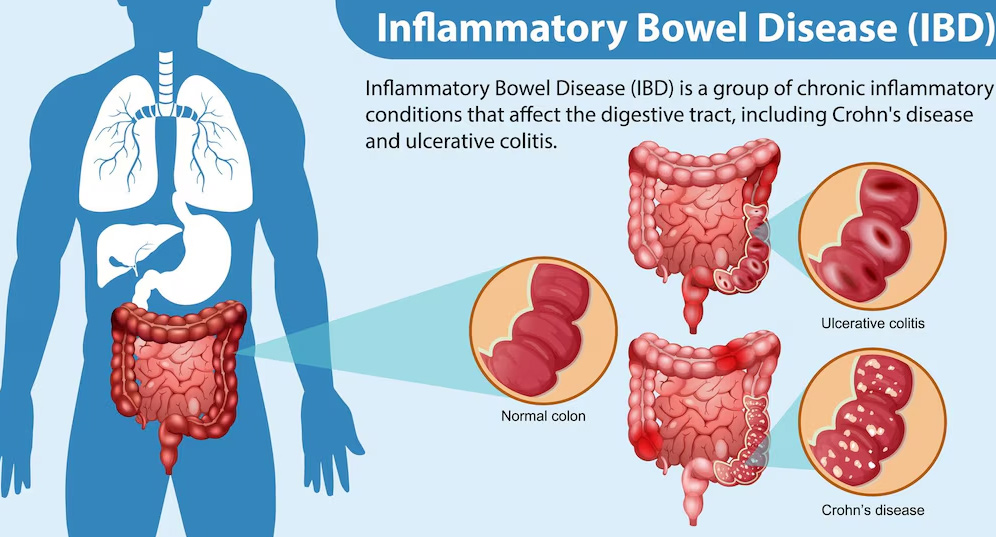
When it comes to gut health, no condition is more misunderstood than Inflammatory Bowel Disease, or IBD. Most people believe that stress is the underlying reason for flare-ups of Crohn's disease or ulcerative colitis, but is this actually the case? We exclusively spoke to our expert, Dr Bhumesh Tyagi, Consultant, General Medicine and Physician, Shardacare, Health City, Noida, and he explained the science, the myths, and the true relationship between stress and IBD. Here is what he shared with us.
Table of Content:-
What Is IBD?
Inflammatory Bowel Disease is a general term for long-term diseases that lead to inflammation of the digestive tract, primarily Crohn's disease and ulcerative colitis. Symptoms are abdominal pain, diarrhea, rectal bleeding, fatigue, and weight loss. The cause of IBD is not yet fully understood, but evidence suggests an interaction of genetics, immune system abnormality, alteration of the gut microbiome, and environmental stimuli.
Link Between Stress and IBD: Myth vs. Reality
For decades, IBD was wrongly labeled a “psychosomatic illness,” suggesting it was purely caused by emotional stress. However, modern medical research has disproven this idea. Stress does not cause IBD, but it can influence its severity.
Research indicates that elevated stress levels have been known to cause flare-ups, increase symptoms, or lengthen recovery. Stress is known to affect the immune system's function and can also affect the gut-brain axis, the close communication system between your digestive system and brain.

Why Stress Causes IBD Symptoms
According to Dr Tyagi, few IBD symptoms caused due to stress include:
- Immune System Activation: Stress causes the release of hormones such as cortisol, which can enhance gut inflammation.
- Gut Motility Alterations: Stress influences the movement of food through the intestines, causing diarrhea or constipation.
- Disruption in the Microbiome: Chronic stress can disrupt the balance of gut bacteria, which in IBD patients is already compromised.
- Sleep and Lifestyle Issues: Stress tends to lead to poor sleep, poor eating habits, and decreased exercise activity, all of which tend to exacerbate IBD symptoms.

Managing Stress for Improved Gut Health
Although stress is not the etiology, its management can dramatically enhance the quality of life in patients with IBD. Some of the strategies are:
- Mind-Body Practices: Yoga, meditation, and controlled-breathing exercises help to calm down the gut-brain axis.
- Cognitive Behavioral Therapy (CBT): Useful in decreasing worry and enhancing coping skills.
- Exercise regularly: Mild exercise benefits both mental well-being and intestinal function.
- Social Support: Conversing with loved ones or engaging in an IBD support group can alleviate emotional burden.
Bottomline
Stress does not cause Inflammatory Bowel Disease directly, but it can exacerbate symptoms and get in the way of healing. When you have IBD, both medical treatment and stress control are what you need to focus on. Medication from a gastroenterologist is still the cornerstone of treatment, but combining it with lifestyle changes and emotional health habits can help you control flare-ups better.
How we keep this article up to date:
We work with experts and keep a close eye on the latest in health and wellness. Whenever there is a new research or helpful information, we update our articles with accurate and useful advice.
Current Version
Oct 18, 2025 18:40 IST
Modified By : Chanchal SengarOct 18, 2025 18:40 IST
Published By : Tanya Srivastava